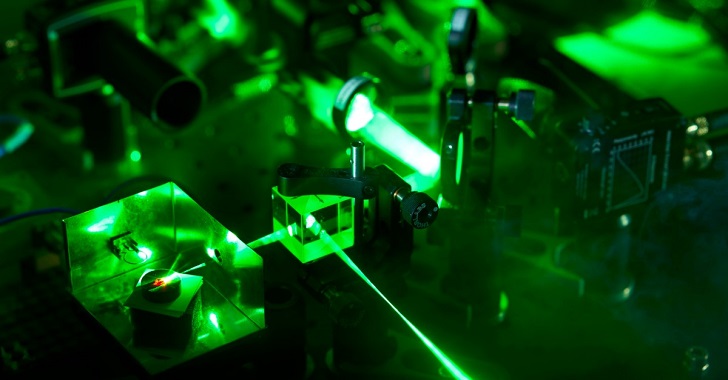The field of quantum technology has gained significant attention in recent years due to its potential to revolutionize various industries and scientific fields. Quantum technology operates on the principles of quantum mechanics, which deals with the behavior of particles at the atomic and subatomic levels. Some quantum technology applications in different areas are known as the Quantum Frontier.
Quantum Computing
One of the most prominent applications of quantum technology is quantum computing. Quantum computers utilize the unique properties of quantum mechanics, such as superposition and entanglement, to perform calculations at an exponential speed compared to classical computers.
Quantum computing has the potential to solve complex problems that are currently intractable for classical computers. It could profoundly impact cryptography, optimization, drug discovery, and materials science.

Gary Stevens/ SSSTORE | Quantum cryptography algorithms can be used across various applications
Quantum Communication
Quantum communication focuses on developing secure and tamper-proof methods of transmitting information. Quantum key distribution (QKD) is a key application in this field, which enables the secure exchange of cryptographic keys between two parties.
Using quantum mechanics principles, QKD ensures that any attempts to eavesdrop or intercept the keys are immediately detectable. Quantum communication also holds promise for developing quantum networks that can transmit quantum information across large distances.
Quantum Sensing and Metrology
Quantum technology offers unprecedented levels of precision in sensing and metrology applications. Quantum sensors can detect minute changes in physical quantities such as magnetic fields, gravity, and time.
This has potential applications in navigation, mineral exploration, environmental monitoring, and healthcare. Quantum metrology, on the other hand, aims to redefine the measurement standards for various quantities, leading to more accurate and reliable measurements.

Jonathan Finley/ MCQST | "Quantum sensing and metrology” is a relatively new research field.
Quantum Imaging and Spectroscopy
Quantum technology can enhance imaging and spectroscopy techniques by providing higher resolution and sensitivity. Quantum imaging techniques, such as quantum illumination and quantum ghost imaging, can enable imaging in low-light conditions and imaging of objects hidden from direct view.
Quantum spectroscopy can offer a more precise analysis of chemical and biological samples, leading to advancements in fields like drug discovery, forensics, and environmental monitoring.
Quantum Simulation
Quantum simulation involves using quantum systems to simulate and understand complex phenomena that are difficult to study with classical computers. By harnessing the power of quantum mechanics, researchers can simulate the behavior of molecules, materials, and physical systems. Quantum simulation can revolutionize drug design, material science, and fundamental physics research.

Stephen Shankland/ CNET | Many industries and fields stand to benefit from the advancements in quantum computing
Quantum Machine Learning
Quantum machine learning explores the synergy between quantum computing and artificial intelligence. Quantum computers could potentially enhance machine learning algorithms by handling large-scale data sets and optimizing complex optimization problems. This combination could lead to pattern recognition, data analysis, and optimization breakthroughs.
Quantum Cryptography
Quantum cryptography offers an innovative approach to ensuring secure communication. Quantum key distribution, as mentioned earlier, is a key component of quantum cryptography. It utilizes the principles of quantum mechanics to guarantee the security of cryptographic keys, making it nearly impossible for any eavesdropper to intercept or decode the information being transmitted.
Quantum Biology
Quantum biology investigates the role of quantum mechanics in biological processes. It explores how quantum phenomena, such as quantum coherence and entanglement, may play a role in photosynthesis, enzyme reactions, and sensory perception.
Understanding the quantum nature of biological systems could provide insights into optimizing drug design, developing novel biomaterials, and improving our understanding of life.





